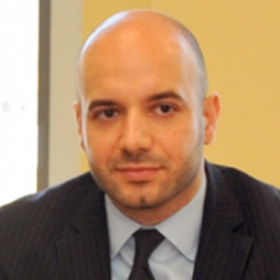
In Lebanon, the Judiciary is the Main Obstacle to Justice
The deadly blast that ripped through the Port of Beirut on August 4 provided a tragic reminder of Lebanon’s systemic problems: a deficit of good governance, widespread corruption and a politicized judiciary apathetic to any semblance of accountability. More than a month since the blast, as Amnesty International detailed in a recent statement, it is becoming increasingly clear that the Lebanese authorities “have no intention whatsoever of fulfilling their responsibilities of conducting an effective, transparent and impartial investigation.”
Calls for an international investigation are undoubtedly justified, given Lebanese distrust of state institutions. But from the onset, Lebanon’s President Michel Aoun—an ally of Hezbollah—has rejected any consideration of an international probe, claiming that the aim of an international inquiry would be “to miss the truth.” Aoun’s reason for his refusal is obvious: an international investigation would circumvent a judicial process that he and his allies control, and would risk exposing them to criminal negligence. President Aoun’s party, the Free Patriotic Movement (FPM), and their allies, have played a central role in the appointment of judges, especially to the Higher Judicial Council (HJC)—a panel of 10 judges meant to ensure the proper functioning of the judiciary. In the investigation into the port blast, the HJC turned down two nominations of independently-minded judges to lead the probe before accepting the nomination of Fadi Sawan, a judge politically aligned with the FPM, Hezbollah, and their allies.
The politicization of Lebanon’s judiciary has repeatedly undermined its objectivity. For cases where political allies are suspect, investigations are perfunctory or non-existent. While the government’s reaction to the explosion is one example, myriad problems impacting the welfare of Lebanese citizens remain unpunished. For instance, subsidized medicine and flour are smuggled into Syria depriving the Lebanese of basic commodities. Exchange offices launder money and prop up a black-market currency exchange that undermines monetary policy.
The Lebanese government’s reaction to the port explosion mirrored its response to the ongoing economic disaster: shifting blame and finding a scapegoat. A favorite tactic is to weaponize the judiciary by using FPM-connected judges to incriminate legitimate businesses. One example is the politically-motivated prosecution of ZR Energy, a relative newcomer to the local fuel market, which has historically been dominated by a handful of politically connected companies. In what has devolved into a wide-ranging scandal that has implicated the FPM and Hezbollah, ZR Energy was wrongfully investigated and charged in delivering defective fuel in an obvious attempt to distract from the Ministry of Energy and Water’s inability to address Lebanon’s longstanding power blackouts. Notably, the Ministry has long been controlled by the FPM and Hezbollah and has added an estimated 1.2-1.8 billion USD annually to the country’s budget deficit, while delivering little to no electricity. This latest case of scapegoating demonstrates that the judiciary is not only a mechanism used to hand out passes to businesses and officials that run afoul, but also has been weaponized to clear the playing field of business adversaries.
Lebanese leaders are now under international pressure to implement much-needed reforms to bring the country back from the brink of economic and political collapse. French President Emmanuel Macron provided a clear roadmap that, if followed, would unlock much needed aid. On September 8, the U.S. Department of the Treasury sanctioned two former ministers for providing “backdoor deals” and relying on Hezbollah for “personal gain and gains for their political allies ahead of the needs of the Lebanese people.” Two Hezbollah connected companies were also sanctioned on September 17. These sanctions send a strong message to the Lebanese ruling elite that they must take politics out of due process and form a government independent of the politicians who have bankrupted the country.
It is becoming clear that similar pressure will be needed to ensure that the Lebanese judiciary is provided with the necessary autonomy to pursue impartial investigations, rather than condemning the political opponents of the FPM and Hezbollah. Lebanon deserves, and the international community must demand, a truly independent investigation into the devastating Beirut port blast. The United States and the broader international community should prioritize bolstering accountability in the next cabinet as Lebanon picks up the pieces and recovers. Judicial accountability must extend not only to potentially negligent port authorities, but also to the political leaders who turned a deaf ear to warnings that tons of ammonium nitrate were being stored steps away from the heart of the city. Only then will the Lebanese people have a chance to rebuild their shattered city, tattered economy and restore their faith in government institutions.
Raymond Karam is the chief program and development officer at the Arab Gulf States Institute in Washington. He previously served as an Associate and the Washington, D.C. representative for the EastWest Institute where he led initiatives with partners in the Middle East on issues of regional security, nonproliferation, economic development and environmental governance.
The views expressed in this publication are solely those of the author and do not necessarily reflect the views of the EastWest Institute

